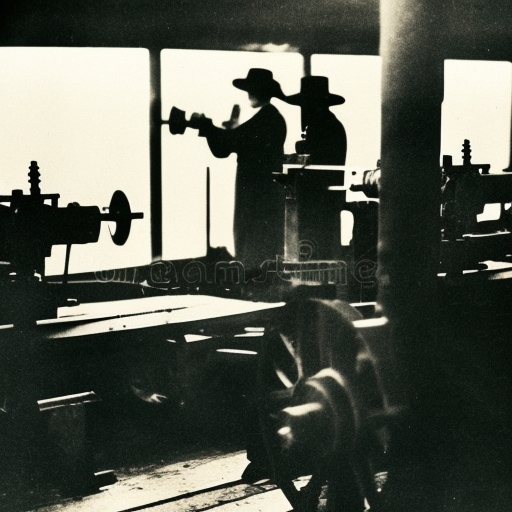The Printing Press by Johannes Gutenberg
Johannes Gutenberg’s invention of the printing press in the 15th century revolutionized the way information was disseminated and had a profound impact on the development of human civilization.
Gutenberg, a German goldsmith and inventor, is credited with inventing the movable type printing press around 1440. This invention allowed for the mass production of books and other printed materials, making them more accessible to a wider audience.
Before the printing press, books were painstakingly handwritten by scribes, making them expensive and time-consuming to produce. As a result, books were primarily owned by the wealthy and religious institutions. The printing press changed this by enabling the production of books at a much faster rate and a lower cost.
Gutenberg’s printing press used movable type, which consisted of individual metal letters that could be rearranged to form words and sentences. This innovation allowed for the efficient printing of multiple copies of a text. Gutenberg’s first major work was the Gutenberg Bible, a Latin translation of the Bible that was printed in 1455.
The impact of the printing press was far-reaching. It facilitated the spread of knowledge and ideas, leading to an intellectual revolution known as the Renaissance. With books becoming more affordable and accessible, literacy rates increased, and a wider range of people had access to education and information.
The printing press also played a significant role in the Protestant Reformation. Martin Luther, a German monk, used the printing press to disseminate his ideas and criticisms of the Catholic Church. Luther’s Ninety-Five Theses, which he nailed to the door of a church in 1517, were quickly printed and distributed throughout Europe, sparking a religious and social upheaval.
The printing press not only transformed the dissemination of religious texts but also had a profound impact on the spread of scientific knowledge. Scientists and scholars could now easily share their discoveries and theories with a wider audience, leading to advancements in various fields, including astronomy, medicine, and physics.
In addition to books, the printing press also revolutionized the production of pamphlets, newspapers, and other printed materials. This allowed for the rapid spread of news and information, shaping public opinion and fueling political and social movements.
The printing press also had economic implications. The ability to produce printed materials more efficiently and in larger quantities led to the growth of the publishing industry and the emergence of a new class of printers and publishers. It also created new job opportunities for typesetters, bookbinders, and other printing-related professions.
Gutenberg’s invention had a lasting impact on the world. It paved the way for the democratization of knowledge, the spread of ideas, and the advancement of human civilization. The printing press remains one of the most important inventions in history, shaping the way we communicate and access information to this day.












